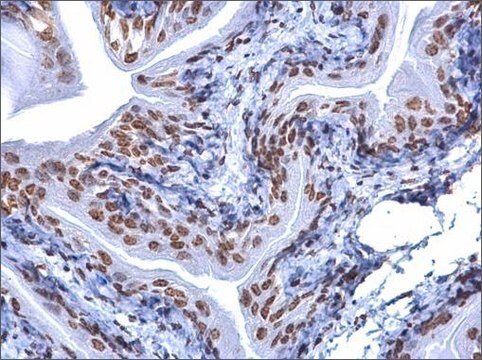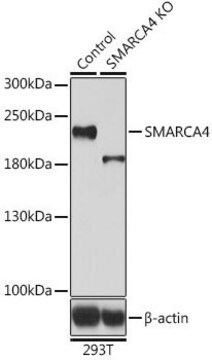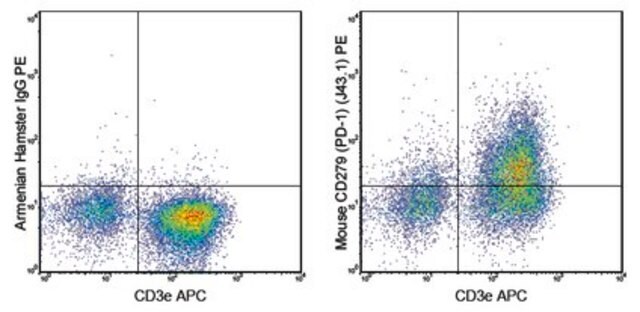SAB4200690
Anti-EpCAM antibody, Mouse monoclonal
clone Ber-EP4, hybridoma cell culture supernatant
Sinónimos:
Anti-CD326 antigen, Anti-EGP, Anti-Epithelial cell surface antigen, Anti-Epithelial glycoprotein, Anti-KS 1/4 antigen, Anti-KSA, Anti-Major gastrointestinal tumor-associated protein GA733-2, Anti-Tumor-associated calcium signal transducer 1
About This Item
Productos recomendados
biological source
mouse
Quality Level
conjugate
unconjugated
antibody form
culture supernatant
antibody product type
primary antibodies
clone
Ber-EP4, monoclonal
form
buffered aqueous solution
species reactivity
human
technique(s)
immunofluorescence: 1:500-1:1,000 using human breast adenocarcinoma MCF-7 cell line.
immunohistochemistry: 1:250-1:500 using heat-retrieved formalin-fixed, paraffin-embedded human colon carcinoma sections.
immunoprecipitation (IP): suitable
isotype
IgG1
UniProt accession no.
shipped in
dry ice
storage temp.
−20°C
target post-translational modification
unmodified
Gene Information
human ... EPCAM(4072)
General description
Immunogen
Application
- immunofluorescence
- immunohistochemistry
- immunoprecipitation
Biochem/physiol Actions
Physical form
Disclaimer
¿No encuentra el producto adecuado?
Pruebe nuestro Herramienta de selección de productos.
Optional
Storage Class
10 - Combustible liquids
wgk_germany
WGK 1
flash_point_f
Not applicable
flash_point_c
Not applicable
Elija entre una de las versiones más recientes:
Certificados de análisis (COA)
¿No ve la versión correcta?
Si necesita una versión concreta, puede buscar un certificado específico por el número de lote.
¿Ya tiene este producto?
Encuentre la documentación para los productos que ha comprado recientemente en la Biblioteca de documentos.
Nuestro equipo de científicos tiene experiencia en todas las áreas de investigación: Ciencias de la vida, Ciencia de los materiales, Síntesis química, Cromatografía, Analítica y muchas otras.
Póngase en contacto con el Servicio técnico








